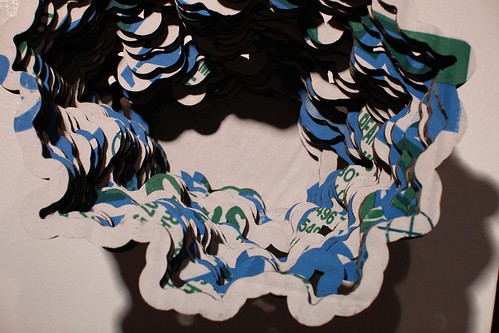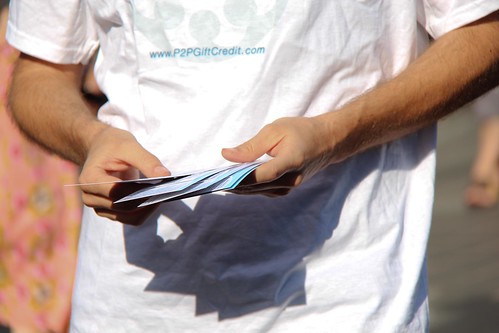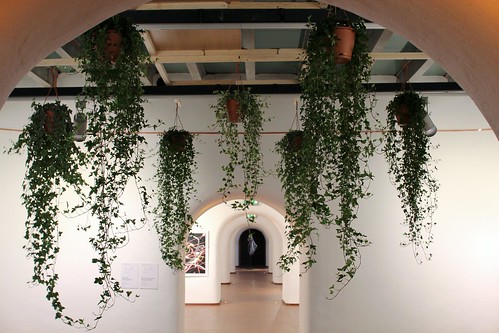Why should you contribute your hard-earned dosh toward my bus? It’s a fair question. I mean we’d all like to go on a little holiday, right? So why the hell should someone else pay for mine?
Well, yes… but reallybigroadtrip isn’t a holiday. It’s a mission. An obsession. A dedication. Digital culture is something I have been involved with, and fighting for, since 1996. And it’s not just about me.
Who reallybigroadtrip aims to help – and how.
Media arts is fun, generally produced in a very DIY manner and appears all around you. This is both a benefit and a curse. It’s fun, so people think it doesn’t take a lot of hard work to realise, or that its makers don’t take it seriously. It’s DIY, so people think it’s not made with care, attention and achieved through years of trial and error (largely self-taught because generally no one has done ‘that thing’ before). And it’s ubiquitous, so people think it’s just something that is everywhere, easy to resource and make something from nothing – or worse, it’s so ubiquitous that it just blends into the background and isn’t even noticed for the wonder that it is.
Media artists – this project puts media artists, makers, and their practice right at the centre. Any media artist can make use of the data I gather to help support their media arts proposals. They can contribute their work to touring programs, share their process through interviews, ask me to document their work, and can come on-board as my Nomads in Residence. This isn’t the only database of media artists and their work, nor is it the only online and touring showcase or residential lab. But I am not currently aware of any other space that does all of things at the same time while actively campaigning to increase their visibility within arts and cultural policy in Australia and beyond. This isn’t even just for media artists either; any creative digital culture practitioner can participate, and any non-digital creative person can use the information I share to learn more about how to get more geeky themselves, or find a geek who suits their needs.
Funders/policy developers – as much as we all like to complain about how media arts is sidelined in arts and cultural policy, there are a lot of individuals out there who work incredibly hard to help redress the balance. Any funder or policy developer interested in this space can use this project as a data resource. The documentation and interviews will show what a diverse range of artwork exists, how media arts practice works, how many people are involved as makers and participants, and can provide link back to examples of work to help illustrate their point. By example, while working at the Australia Council I was asked “but is media arts really a sector?” and a senior member of the Office for the Arts told me “but art can’t be included in Creative Industries thinking because isn’t an industry, it doesn’t make any money”. There is an astonishing lack of understanding of what digital culture is, and why it needs to be supported from the top down, the bottom up and the middle out. I can help answer some of those questions and create qualitative and quantitative bridges across some of those gaps.Audiences – how can non-geeky audiences be expected to find out about media arts events and experiences if they don’t even know that it exists in the first place? Media arts doesn’t often get a look-in to ‘mainstream’ press coverage. I could whinge but instead I’ll just cite a PR colleague who once (in 2007) told me journalists weren’t answering or processing my press releases because they were emailed when they needed to be sent by fax. Often this lack of coverage simply boils down to the fact that it just doesn’t always take place in mainstream galleries – it’s just not important enough to be on the radar. Arts journalists also have enough of a hard time battling for column space against adverts and editors, never mind being expected to make sense of things that sound weird, niche and geeky. But that’s not helpful when you’re trying to increase your audiences outside of the geek-networks you know you can rely on. reallybigroadtrip takes the art to audiences wherever they are, yet doesn’t patronise you because of where you live. It shares the word across known and unknown networks and, where needed, helps to explain what it is, how it works and why it matters.
Need more convincing?
Here’s a few snippets from testimonials about me and my ability to pull this off.
“I want Fee to do RBRT because I want to see what happens when someone crowdsources their life… And if anyone can do it, Fee can – I have seen Fee’s almost alchemical project management powers in action…where Fee turned a little pot of money into a suite of internationally benchmarked arts projects and real transformation in some of the most traditional companies in the Australian arts sector” Jackie Bailey, arts and creative industries consultant & writer, NSW.
“She is a whirlwind and I can think of no better person to travel across Australia and document – with the same level of energy she brings to her own projects – what other people are doing in the wide brown land of digital culture.” Paul Callaghan, writer & Director Freeplay Independent Games Festival, VIC.
“This is a pivotal time in our creative cultural history and reallybigroadtrip is an opportunity for us to reflect on the changes as they happen, as well as a valuable historical resource for the future. I feel lucky that this project is happening!” Jennifer Greer Holmes, freelance niche arts, festival & campaign management, SA.
“we are truly excited by the prospect of fee hitting the road in a geeked up bus and spreading the digital word on a grass roots level. this activity is vital and timely with the national broadband network being rolled out and we’re sure will help to demystify it’s potential impact on communities around australia and connect people across geographies. we can’t wait for the bus to head out our way!” steve bull & kelli mccluskey – pvi collective arts group, WA.
So… will you help?
By helping me buy my bus (regardless of whether you practice media arts, support the sector or care about being able to participate in this fun stuff that other people make) it means that you know someone completely obsessed with this stuff is battling for you. I’m battling to help media arts become – and stay – recognised as an artform, to remind people who make decisions about policy development that digital isn’t just about marketing and distribution. I’m battling to remind people that digital culture is two-way, that things have changed, and that exciting possibilities lie ahead if you just open your eyes and stop being scared of change.
By helping to share the word about this campaign – by email, facebook, twitter, pinterest or whatever the communications channel of your choice might be – you become the media. Sharing the word is almost as useful as pledging… and sometimes better! If you need a document that explains the project, or an email or short statement to forward to your networks, just ask.
If you can help in other ways – by offering advice, connecting me to the media (do you have a fax machine?!), whatever you think could be useful, then just contact me. I’m quite friendly really.
Disagree?
Then tell me why! I’m so interested in this area that I’m open to having constructive conversations about your doubts and concerns too. No arguments, just helpful exchanges of opinions.



![Quartet for Dot Matrix Printer by [The User] (Thomas McIntosh & Emmanuel Madan) Quartet for Dot Matrix Printer by [The User] (Thomas McIntosh & Emmanuel Madan)](http://farm7.staticflickr.com/6162/6164270014_79dda9b852.jpg)
